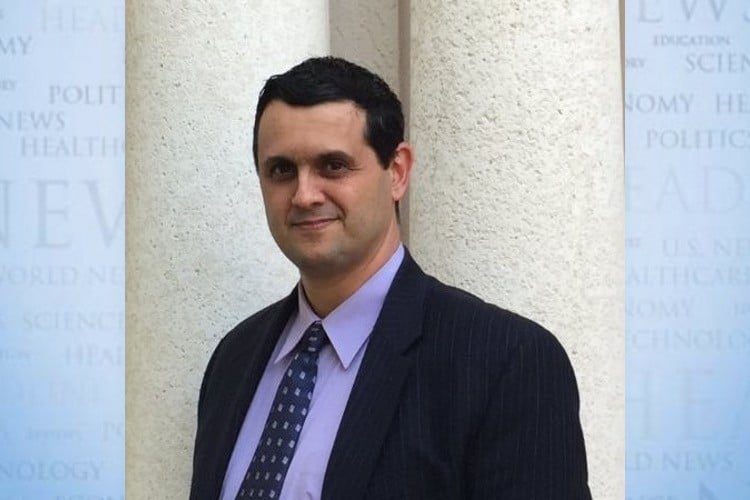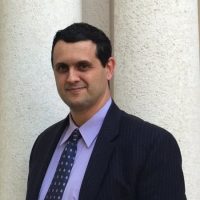
The southern border of the United States has a major problem right now. Illegal immigrants are entering the country at a rapid pace, and Vice President Kamala Harris, who has been tasked with overseeing the nation’s border crisis, has failed to visit the border to date. While there is no justifiable excuse for her behavior, the reason for her neglect is crystal clear. Democrats, including Harris, want the border to remain open, as this creates a pathway for additional votes for Democrats by those who are in the country illegally and/or those who are convicted felons.
During a recent interview, Harris admitted that she has not yet been to the border. According to Harris, it is important to figure out why people are going to the border. In other words, the focus should be on the cause. How convenient. While Harris focuses on the “cause,” illegal immigrants are flowing into the country at a rapid pace. Her recent plea asking people not to enter the nation illegally was nothing more than mere lip-service, and should not be taken seriously. In reality, Harris has done absolutely nothing to stop the flow of people entering the country.
Why would she? For years, Democrats have pushed to allow those who are in the country illegally to vote. The same holds true for convicted felons. For example, in 2019, Bernie Sanders indicated that he would extend voting rights to the Boston bomber who injured and/or killed many innocent people in 2013. Democrats also celebrated the passage of Amendment 4 in Florida, which restored voting rights for people convicted of felonies as long as they had completed their sentences and paid all associated fees and fines (excluding people convicted of murder or felony sex offenses).
Most recently, Democrats proposed H.R. 1, a bill designed to federalize the nation’s elections, steal power from the individual states, and to give Democrats a major advantage in future elections. Several provisions of the bill are of particular relevance. In an article in the Boston Herald, Howie Carr discusses some of the concerns with H.R. 1 including, but not limited to:
No voter ID required, anywhere.
No more requirements for mail-in votes to be notarized or signed by witnesses.
No more laws against ballot harvesting.
Same-day voter registration nationwide and 15 days of early voting — mandatory.
“Late” ballots would have to be counted for 10 days after the election.
Ballot harvesters working for far-left, George Soros-type groups could turn in unlimited — unlimited! — numbers of ballots.
Whatever the state laws require, convicted felons could vote in presidential elections.
H.R. 1 would also make it almost impossible to purge outdated rolls of dead, illegal or since-moved voters, you know, like the man born in 1820 who was still a registered voter in Michigan last November.
It expands automatic voter registration, such as signing up everyone with a driver’s license, even in Democrat states like California that issue licenses to hundreds of thousands of illegal immigrants.
If illegal immigrants are permitted to vote, Democrats will be the likely beneficiaries. A 2014 article in the Washington Examiner bolstered this point. The article cited a report from the Center for Immigration Studies authored by James Gimpel, a University of Maryland professor, who concluded that immigrants tend to vote Democrat. The article, while written over 10 years ago, also cited another study:
A 2012 study of 2,900 foreign-born, naturalized immigrants cited in the report showed that about 62 percent identified themselves as Democrats, while 25 percent identified as Republicans, and 13 percent identified as independents. At this moment, according to the report, there are an estimated 8.7 million immigrants in the U.S. who are eligible for naturalization. Not all will become voting citizens, but somewhere between 50 percent and 60 percent will. And it’s a sure bet that a majority will identify themselves as Democrats.
It is a safe bet that Democrats are aware of these voting trends, which is one reason why they want to pass bills such as H.R. 1, which will significantly ease voting laws and will make it easier for illegal immigrants to vote (see an excellent discussion of how H.R. 1 will accomplish this here). It is also why they oppose any push to tighten election laws, and to make the nation’s elections more secure, as seen in Florida and other states around the country.
The same motivating factors apply to the Democrats’ push to allow convicted felons to vote. For example, as reported in a 2018 article in Time, when Floridians voted to pass Amendment 4, they gave approximately 1.4 million people the right to vote in Florida elections. This was a potential dream come true for Florida Democrats. As reported in a 2014 BizPac Review article:
A new study published in a leading political science journal confirms yet again what any observer of American politics knows instinctively:
Felons who are allowed to vote overwhelmingly favor Democrats — 6 to 1 in the states studies.
An article in the Tampa Bay Times came to a similar conclusion.
Illegal immigrants and convicted felons tend to vote for Democrats. Harris likely knows this, as do most of her liberal and/or far-left colleagues in Congress. For this reason (among others), Harris has no incentive to visit the border or to take any serious steps to curb the large influx of people who are entering the country illegally. Rather, Harris and her colleagues will simply try to discover the “cause,” while our borders remain open.
At the end of the day, Democrats only care about power. To achieve this, they need to maintain control of Congress and the White House. To increase their chances of doing so, they want to allow illegal immigrants to enter the country, permit illegal immigrants and convicted felons to vote, and to significantly weaken the nation’s election laws by way of bills such as H.R. 1 and the John Lewis Voting Rights Advancement Act.
For the sake of the country, Republicans in Congress must oppose these far-left policies. Along these same lines, American voters should reflect their disdain for such policies at the polls when the next opportunity presents itself.




